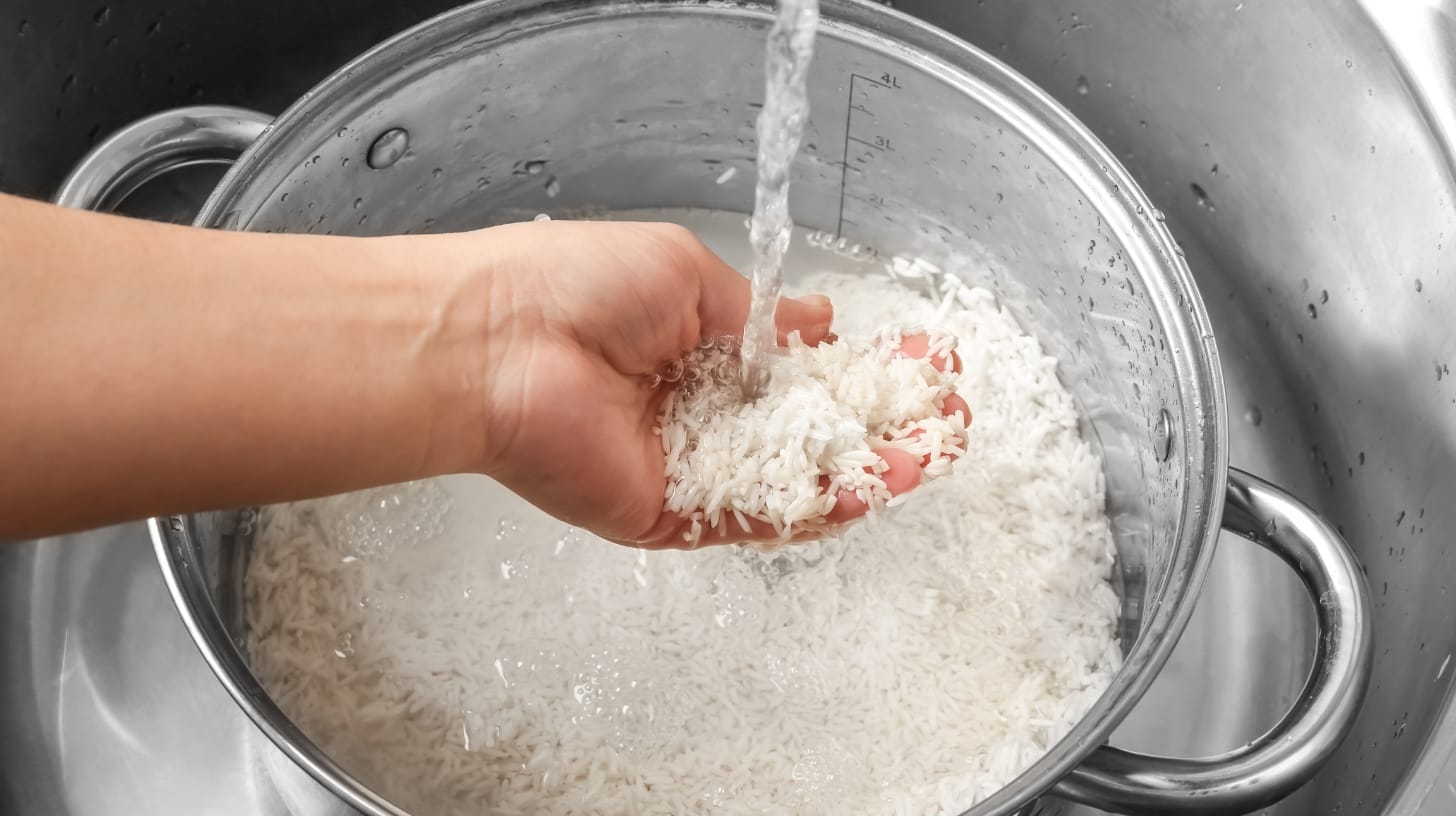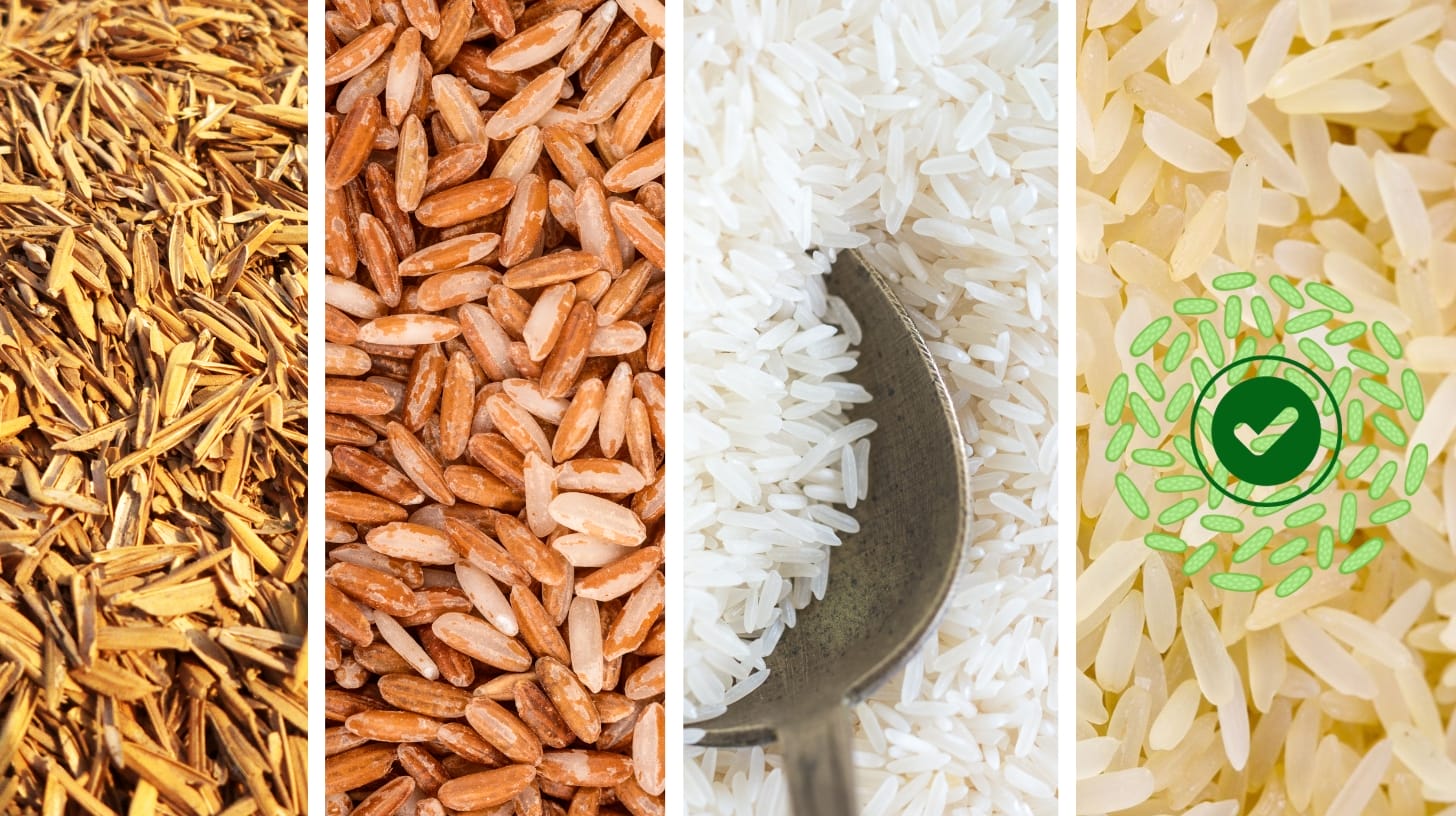Rice Water Plants: How to Use Rice Water for Plant Growth
Discover the intriguing world of eco-conscious horticulture. Would it astonish you to discover that the seemingly trivial byproduct of rice cooking, often tossed away, might be your hidden ally for a flourishing garden? This often overlooked kitchen waste is brimming with vital nutrients and advantageous bacteria that enhance plant development.
In this blog post, we’ll explore the nature of plants with rice water, its preparation process, and uncover its hidden nutrient wonders. Of paramount interest, we will discuss why it’s rapidly becoming a favorite among gardening devotees seeking an environmentally friendly way to enhance the health and growth of plants.
Grab your watering cans − it’s time to unearth how rice water plants, a seemingly insignificant part of your cooking routine can be your ultimate gardening hack.
Key Takeaways
- Rice water − the nutrient-filled liquid left behind from cooking or pre-soaking rice − can be a great natural fertilizer.
- Different parts of the rice grain, including the hull, bran, white rice, and germ, contribute essential nutrients such as nitrogen, potassium, phosphorus, iron, and zinc, fortifying plant health and growth.
- Rice water promotes plant health, nutrient absorption, and soil fertility while supporting root development and disease resistance.
- Remember to use rice water in moderation, avoid overheating, and consider your plants’ specific requirements before integrating rice water into your gardening routine.
What is Rice Water, and How is it Made?

Rice water refers to the liquid left after soaking or cooking rice, and it is a potent nutrient source for plants. One may produce rice by gathering the water used to wash or pre-soak rice or boiling rice with extra water and draining the liquid.
Rice Water from Washing or Soaking
Creating rice water by washing or soaking is simple. First, take some uncooked rice grains − the types rich in starch yield the best results. Rinse these under cold water, retaining your rice water’s runoff! Notice the milky white hue from the grain’s minerals and starch. Store this water in a container for later use. Use this as a plant fertilizer immediately or preserve it for future use.
Making Rice Water from Boiling
Alternatively, you may extract rice water during the boiling process. Begin by covering some uncooked rice with water in a pot. Heat this until boiling for approximately 15-20 minutes, then drain the surplus water into a separate container and allow it to cool. This remaining bottom water is rich in essential plant nutrients like nitrogen, potassium, and phosphorus.
Don’t discard this nutrient-dense solution! Let it cool before using it, as the warmth might damage plant roots.
Here is an actual video of rice water extracting:
Is Rice Water Good for Plants?

Rice water carries an array of nutritional elements beneficial for plant growth, which come from the hull, bran, white rice, and germ of the rice grain. These different parts impart nutrients to the water, forming an excellent plant fertilizer.
The Hull
The hull, or the outer shell of the rice grain, is abundant in elements beneficial to plants. It packs nitrogen, protein, potassium, iron, and zinc, contributing to healthy plant growth. Notably, the hull also doubles as a natural pest deterrent. Using rice water derived from the hull can boost the health and vitality of your garden.
This type of rice water is especially good for garden plants, as it provides water and nutrients essential for their growth. Rice water can be used to enhance soil quality, offering benefits of rice water to your garden.
The Bran
Loaded with nutrients like iron and zinc, the bran fortifies plants. Iron enables plants to produce chlorophyll, giving them green color and harnessing sunlight for growth. Zinc, too, plays a significant role in plant growth. It assists plants in developing seeds and combating diseases.
These nutrients, part of the washed rice water, can directly boost plant health and growth by enriching their growing environment. You can add rice water to your regular water plant routine for added benefits.
White Rice
People often use white rice in their daily meals, but did you know it could benefit your plants, too? Although the hull and bran are removed from white rice, they retain crucial plant nutrients. These include nitrogen, protein, potassium, phosphorus, iron, and zinc. Incorporating white rice water into your watering or fertilizing routine can supply these vital nutrients, fostering plant growth and vitality. Rice water also contains elements that are beneficial for potted plants.
White rice water is not only useful to your plants. Still, it is also environmentally conscious and waste-reducing compared to traditional fertilizers. So, the next time you cook white rice, let your plants enjoy the leftover water! This way, you make rice water for plants and use it to water them, providing water for your plants that are rich in nutrients.
The Germ
The germ present in rice in water is integral to plant growth stimulation. It acts as an energy supply for the healthy bacteria and fungi inhabiting the soil, creating a favorable environment for plant growth.
The germs offer additional fertilizing benefits, ensuring plants receive vital nutrients for maximum health and productivity. Thus, employing the power of the germ in rice and water allows gardeners to support sustainable gardening practices and grow thriving plants. Depending on your preference, You can use fermented or unfermented rice water, adjusting the amount of water as needed.
This practice is a great way to water your garden, supplementing or even replacing tap water in some cases.
Can I Use Rice Water as a Fertilizer for My Ixora Plant?
Can I use rice water as the best fertilizer for ixora plant? Rice water is a natural, cost-effective option that contains essential nutrients like nitrogen, potassium, and phosphorus. Applying it as a foliar spray or soil drench can enhance the growth and overall health of your ixora plant. However, it’s recommended to supplement rice water with a balanced fertilizer for optimal results.
Benefits of Using Rice Water for Plants
Incorporating rice water in gardening offers numerous benefits, including better plant health and growth enhancement. Learn how this simple yet effective fertilizer can revamp your garden.
Enhanced Plant Health
Applying rice water can significantly enhance plant health. Its richness in nutrients and minerals fosters plant development. The starch in rice water encourages healthy bacterial growth in the soil, leading to robust roots and better nutrient absorption. The nutrients in rice water, like nitrogen, phosphorus, and potassium (NPK), are crucial for plant growth. Furthermore, rice water is a natural soil amendment and fertilizer, improving soil fertility and crop yield.
Using rice water can also enhance disease resistance, regulate water intake, and even repel pests like fruit flies and aphids. Therefore, introducing rice water to your gardening routine is a waste-minimizing and eco-friendly way of enhancing your plants’ health.
A Significant Growth Boost
Research has proven that rice water significantly enhances plant growth. Essential plant growth nutrients, such as nitrogen, phosphorus, and potassium (NPK), are abundant in rice water. These nutrients facilitate plant processes like photosynthesis and water transport. Additionally, the starch in rice water encourages the buildup of healthful soil bacteria and fungi.
These microorganisms break down organic material, rendering nutrients more accessible to plants. Consequently, using rice water as a natural fertilizer can produce better crops and healthier plants. By promoting a healthy bacterial environment in the soil, rice water enhances its fertility and structure, providing an ideal plant growth environment.
In essence, incorporating rice water into gardening can significantly enhance plant health and growth. It delivers vital nutrients while improving soil quality through beneficial microbial activity.
Precautions for Rice Water Use
Before you start using rice water on plants, consider several precautions:
- Use in moderation: Despite its benefits, excess water use can promote harmful bacteria growth that can damage plant roots. It’s advisable to use rice water no more than once a month.
- Avoid hot or boiling water: Overly hot or boiling rice can harm your plants. Before application, let the water cool to prevent potential damage.
- Understand your plant’s needs: Not every plant will respond similarly to rice water. Some might prosper, while others might suffer. Before integrating rice water into your care routine, research your specific plant species and their preferences.
- Consider other fertilizers: Although rice water can supplement your gardening, it might not deliver all the nutrients required for optimal plant growth. Consider buying fertilizers or other organic amendments to supplement your plants’ nutritional needs.
- Monitor for root rot indicators: The excess moisture from rice water can oversaturate the soil, favoring root rot in some plant species. Vigilantly watch for any signs of wilting, yellowing leaves, or an unpleasant odor from the soil, indicating potential root rot.
In conclusion, using rice water for plants provides a natural nutrient boost and fosters healthy growth. The minerals and starch in rice water support beneficial bacteria growth and distribute essential elements to plant roots.
Whether caring for houseplants or managing an outdoor garden, a touch of rice water can offer an eco-friendly way of invigorating them. Give it a try and enjoy a thriving, flourishing garden!
Frequently Asked Questions
What is rice water for plants?
Rice water is the residual water from cooking or soaking uncooked rice. It’s used as a natural plant fertilizer due to its rich nutrient content.
How do you create and use rice water for indoor plant nourishment?
Retain the leftover rice water after boiling or soaking rice. Once cooled, this nutrient-packed ‘rice water’ can water your indoor plants.
Is fermented rice water for plants beneficial?
Fermented rice water is absolutely beneficialfor plants, it contains numerous vitamins like B Vitamins, which are helpful for overall plant growth.
Can using rice water help control plant pests?
Fermented rice water cultivates a healthy bacterial population that acts as an eco-friendly alternative to chemical pesticides, thus aiding in controlling pests like gnats and flea beetles.
Are there other kitchen byproducts similar to rice water that can be used for the health of my plants?
You might also consider boiled eggs or potato water; they contain essential macro and micronutrients necessary for the good health of various plants.
Why should homemade fertilizers like water from banana peels, rice, or potatoes be preferred over chemical ones?
These naturally derived fertilizers offer an eco-friendly alternative, reducing soil degradation and protecting global waters from pollution.






